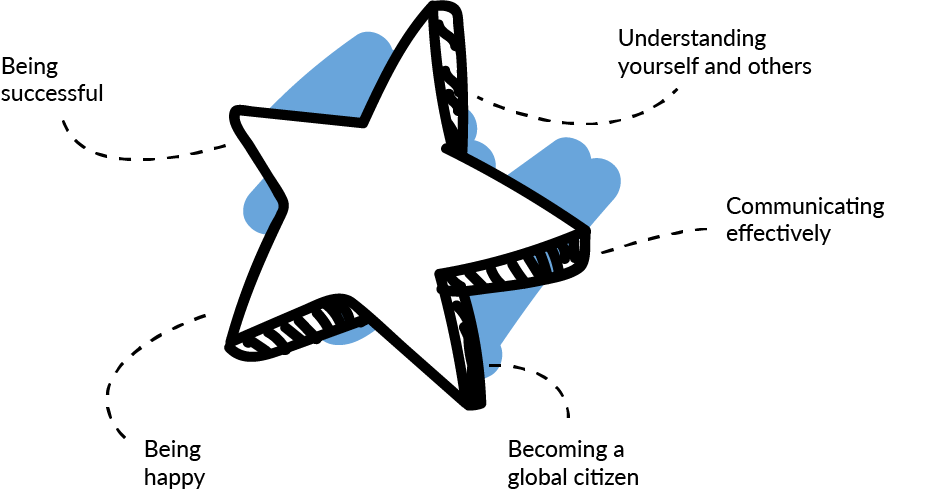
Ithaca: Odyssey Outreach
At Odyssey, we believe that welcoming children back to education has to start in the place they’re happiest and most comfortable – which for many is the home.
In the Ancient Greek epic poem the Odyssey, Ithaca is the home of the story’s legendary hero, Odysseus – and it’s also the name of our outreach programme.
Ithaca starts in the child’s home, and has one very clear overriding aim – to do whatever’s needed to support the student gradually return to more formal education, whether that be full-time learning at Odyssey House School, or a blend of home and classroom teaching.
Phase 1 – Tailoring support
- The Assessment Team will work with the family and pupil in the home to build rapport, assess needs and start the education re-engagement programme.
- This programme uniquely focuses on the child AND the family. A holistic and trauma-informed approach enables the pupil and their families to explore the social and emotional barriers that exist for them individually and collectively as a family unit.
Phase 2 – Putting the child’s needs at the forefront
- Ithaca provides for children and their families, providing education, health support and social care early help. It co-ordinates unique pan-disciplinary services for children, families and schools struggling to manage school anxiety.
- This model is built on the premise of placing the child at the heart of a professional dialogue to identify creative solutions to negative experiences to meet the needs of children and families.
Phase 3 – Encouraging re-engagement, improving life chances
- To sustainably improve the life chances for children and their families
- To help pupils re-engage with education and enable them to gain relevant qualifications and achieve their personal best
School refusal is a major problem
Why does Ithaca exist? Because school refusal is a huge issue that effects hundreds of thousands of children across the UK, and it’s getting worse.
The most recent government statistics suggest there are over 750,000 persistent absentees in England, with 60,000 of these missing more than half their schooling in 2018-19. That was up from 39,000 just three years earlier
But unfortunately, the way this absence is often dealt with by schools and local authorities is completely counter-productive.
When a child refuses to go to school and parents or carers aren’t able to convince them otherwise, this is often labelled as ‘defiant behaviour’ or ‘inconsistent parenting’.
At Odyssey, we’re passionately opposed to this kind of destructive stereotyping. School refusal effects children of every gender and social class, and the students in question are often quiet, well-behaved and academically above-average, while others are outgoing with many friends.
Instead, we’re dedicated to understanding the reasons children refuse school, and gently helping them overcome these issues to eventually return to the classroom.


Why do some children refuse to go to school?
Children refuse school for a whole range of complex and often intertwining reasons.
Some children develop a fear of school itself. For others, it’s travelling to school, or the fear of being separated from their parent or carer, that’s the underlying issue.
Sometimes, school anxiety stems from traumatic past experiences such as being bullied – but in other cases, the fear doesn’t seem to have any obvious rational trigger at all.
It may be that the child has neurotypical profiles like learning difficulties or autism, which have made them more sensitive and vulnerable.
It’s equally possible that a student’s parent or carer may have emotional or physical difficulties themselves, meaning the child feels a strong sense of duty to remain at home with them.
When does school refusal tend to happen?
School refusal often occurs when children are going through periods of transition, like when 5 year-olds first start primary school, or when students move from primary to secondary school.
It can also happen after long periods of authorised absence like illness, as the child struggles to readjust to the classroom environment after weeks or sometimes months away from it.


Overcoming school anxiety
The factors contributing to school anxiety are personal to each child, but with focused and effective support, outcomes can be very positive.
We know that two-thirds of children with school anxiety will grow up to become healthy adults, with no serious lasting issues.
At Odyssey, we’re committed to ensuring positive outcomes for children with school anxiety and in particular, the one-third of young people at risk of ongoing emotional and psychological well-being difficulties, and more wider anxiety challenges such as work refusal and agoraphobia.
Are you concerned about your child, or a child you know? Click the button below to get in touch.
Get in touchThe programme is geared for those who:
Are reluctant or refuses to attend school
in conjunction with emotional distress that
over a period of time has resulted in becoming a barrier to school engagement, or emotional distress that is
chronic and hindering attendance, usually but does not necessarily manifest in absence.
Do not try to hide associated absence from their parents
and if they previously hid absence then they stopped doing so one the absence was discovered.
Do not display severe antisocial behaviour
beyond resistance to parental attempts to
get them to school.
Parents have made reasonable efforts
currently or at an earlier stage of the problems, to secure
attendance at school, and/or the parents express their intention for their child to attend school full-time.
How:
- Defined planning process used to build constructive relationships and support networks
- Emerged from work with young people and families in cases involving emotional and behavioural disorders
- Community-based, culturally relevant, individualised, strengths-based, and family- centered
- Intervention plans address multiple life domains across home, school, and community
- Delivers specific interventions where there is a highly disproportionate level of risk factors relative to protective
factors
